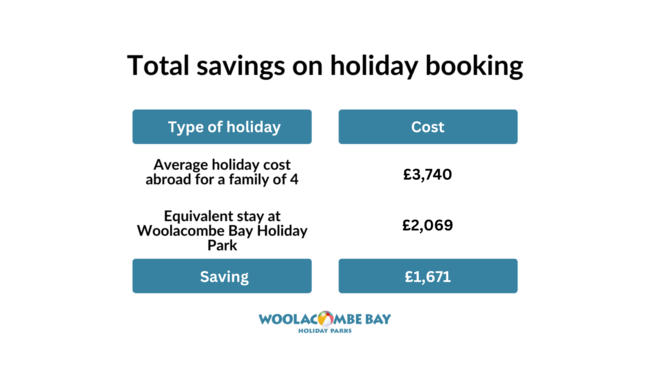
Traveling is not just about visiting a destination; it’s about immersing yourself in its history, culture, and identity. And the possibilities are endless. With Israel Connection tours, get ready to embark on a journey like no other as we guide you through the wonders of this captivating land. In this comprehensive guide, we will provide you with invaluable tips and insights to plan your visit to Israel like a pro. From iconic historical sites that tell the story of ancient civilizations to breathtaking natural landscapes that will leave you in awe, Israel offers an experience that is both enriching and transformative.
Whether you’re seeking spiritual enlightenment, exploring vibrant cities, or simply indulging in mouthwatering cuisine, our guide has got you covered. We’ll help you navigate through the planning process, highlight must-visit spots, and provide essential information to keep in mind during your trip.
So buckle up and get ready for an unforgettable adventure in the Holy Land. Discover the meaning behind every site, soak in the rich history, and create memories that will last a lifetime.
Essential Travel Tips for Visiting Israel
Best Time to Visit Israel
To visit Israel like a pro, it’s crucial to consider the best time to go. The ideal period is during spring (April and May) and autumn (September and October). These seasons offer pleasant weather with moderate temperatures, making it comfortable for exploring the country. Moreover, you’ll encounter fewer crowds compared to the peak summer season. This means shorter lines at popular attractions and a more enjoyable experience overall.
Local Customs and Etiquette
Before embarking on your journey, take some time to familiarize yourself with the local customs and etiquette in Israel. It’s essential to respect the cultural norms of the country you’re visiting. Here are a few tips:
- Dress modestly when visiting religious sites or conservative neighborhoods.
- Follow proper behavior when entering places of worship.
- Be mindful of personal space and avoid physical contact unless invited.
- Remember that Friday evenings and Saturdays are observed as Shabbat (the Jewish Sabbath), so many businesses may be closed or have limited hours.
By understanding these customs, you’ll show respect towards the local culture and ensure a more harmonious experience during your trip.
Packing Appropriately
When packing for your trip to Israel, it’s important to consider both conservative dress codes and outdoor activities. Here are some tips on what to pack:
- Modest clothing: Pack clothing that covers your shoulders, knees, and cleavage when visiting religious sites or conservative areas.
- Comfortable shoes: Since there’s plenty of walking involved in exploring cities like Jerusalem or Tel Aviv, comfortable shoes are a must.
- Sun protection: Don’t forget sunscreen, sunglasses, and a hat to protect yourself from the sun’s rays while exploring outdoor attractions.
- Swimwear: If you plan on enjoying Israel’s beautiful beaches along the Mediterranean Sea or Dead Sea, pack appropriate swimwear.
By packing appropriately for both cultural considerations and outdoor activities, you’ll be prepared for any adventure that comes your way.
Staying Connected
Staying connected while traveling is essential, especially in a foreign country. In Israel, there are two primary options to ensure you have access to the internet:
- Purchase a local SIM card: Buying a prepaid SIM card upon arrival will provide you with a local phone number and data plan. This allows you to stay connected wherever you go.
- Utilize Wi-Fi hotspots: Many hotels, cafes, and public spaces offer free Wi-Fi hotspots. Take advantage of these areas to connect your devices without incurring additional costs.
Having a reliable internet connection will enable you to navigate using maps, communicate with loved ones back home, and access helpful travel apps during your visit to Israel.
Traveling like a pro requires careful planning and consideration of various factors.
Important Things to Know Before Visiting Israel
Understand the Currency Exchange Process and Where to Find ATMs in Major Cities
When planning your visit to Israel, it’s essential to understand the currency exchange process and know where to find ATMs in major cities. The official currency of Israel is the Israeli Shekel (ILS). While some places may accept US dollars or euros, it’s best to have local currency for most transactions.
To exchange your money, you can visit banks, post offices, or authorized currency exchange offices called “Change.” These establishments usually offer competitive rates. It’s important to compare rates and fees before making any exchanges.
In major cities like Tel Aviv, Jerusalem, and Haifa, ATMs are readily available. Look for bank ATMs that display international symbols such as Visa or Mastercard. Be aware that some smaller towns or rural areas may have limited ATM access, so it’s advisable to withdraw enough cash beforehand.
Research Visa Requirements Beforehand to Avoid Any Last-Minute Complications
Before embarking on your trip to Israel, research visa requirements beforehand to avoid any last-minute complications. Citizens of many countries are eligible for a free tourist visa upon arrival at Ben Gurion Airport or other ports of entry. However, it’s crucial to check if your country falls under this category.
If you’re not eligible for a free tourist visa upon arrival, make sure you apply for a visa well in advance through an Israeli consulate or embassy in your home country. Allow ample time for processing as visa applications can take several weeks.
Be Aware of Religious Holidays That May Affect Transportation, Opening Hours, etc.
Israel is a land rich in religious history and traditions. Therefore, it’s important to be aware of religious holidays that may affect transportation schedules and opening hours of various sites and businesses during your visit.
For example, during Jewish holidays such as Rosh Hashanah (Jewish New Year), Yom Kippur (Day of Atonement), and Passover, public transportation may be limited or not available at all. Many shops, restaurants, and attractions may have altered opening hours or even be closed entirely.
To avoid any inconvenience, plan your visit accordingly and check the dates of major religious holidays in Israel. This will allow you to adjust your itinerary and make alternative arrangements if necessary.
Safety Tips and Considerations
Follow security guidelines provided by local authorities during your stay in Israel
When visiting a foreign country, it’s important to prioritize safety. Israel is generally considered a safe country for tourists, but it’s always wise to follow the security guidelines provided by local authorities. These guidelines are designed to ensure your well-being and protect you from potential risks.
- Stay updated: Keep an eye on travel advisories and news updates related to the region you plan to visit in Israel. This will help you stay informed about any security concerns or developments that may affect your travel plans.
- Register with your embassy: It’s a good idea to register with your embassy or consulate upon arrival in Israel. This allows them to reach out to you in case of any emergencies or unexpected situations.
- Be vigilant: While exploring different cities and tourist attractions, remain aware of your surroundings. Avoid getting involved in any political demonstrations or gatherings that could potentially turn violent.
Keep important documents secure
Losing essential documents like passports, travel insurance details, or identification cards can quickly turn a pleasant trip into a stressful experience. To avoid such mishaps:
- Make copies: Before leaving for Israel, make photocopies or take pictures of your important documents. Keep these copies in a separate location from the originals, such as in your hotel room safe or with a trusted friend or family member back home.
- Use secure storage options: Invest in a travel wallet or money belt that can be worn discreetly under your clothing. These provide an additional layer of security for your important documents and cash.
Itinerary for Day One: Tel Aviv
Tel Aviv, the vibrant and cosmopolitan city of Israel, offers a plethora of experiences that will leave you wanting more. From beautiful beaches to historic sites and mouthwatering cuisine, this city has it all. So, let’s dive into an itinerary for day one in Tel Aviv that will help you make the most of your visit.
Start your day exploring Tel Aviv’s beautiful beaches along the Mediterranean coast.
Kick off your morning with a refreshing dip in the azure waters of the Mediterranean Sea. Tel Aviv boasts some of the most stunning beaches in the world, where you can soak up the sun and enjoy the laid-back atmosphere. Whether you’re a beach bum or just looking for a relaxing start to your day, these sandy shores won’t disappoint.
Visit Jaffa Old City for its historic charm, art galleries, and picturesque views.
Take a short stroll from Tel Aviv’s coastline to Jaffa Old City, a place steeped in history and charm. This ancient port city is bursting with character and offers a glimpse into Israel’s rich past. Explore its narrow cobblestone streets lined with art galleries showcasing local talent or simply take in the breathtaking views from Jaffa Hill overlooking Tel Aviv’s skyline.
Discover Tel Aviv’s vibrant culinary scene through its bustling markets and trendy restaurants.
No visit to Tel Aviv is complete without indulging in its mouthwatering cuisine. Head over to Carmel Market or Shuk HaCarmel as locals call it, where you’ll find an array of fresh produce, spices, street food stalls, and more. Immerse yourself in the vibrant atmosphere as you sample delicious treats like falafel, hummus, shawarma, and freshly squeezed juices.
For lunch or dinner options, explore Neve Tzedek neighborhood known for its trendy restaurants serving up innovative dishes with Israeli flavors. From farm-to-table concepts to fusion cuisine, there’s something to satisfy every palate. Don’t forget to pair your meal with a glass of Israeli wine or craft beer for the full experience.
Take a stroll down Rothschild Boulevard lined with Bauhaus architecture.
After indulging in some culinary delights, take a leisurely walk down Rothschild Boulevard, one of Tel Aviv’s most iconic streets. This tree-lined avenue is famous for its distinctive Bauhaus architecture, earning it the title of a UNESCO World Heritage site. Admire the elegant buildings and soak up the atmosphere as you make your way through this bustling boulevard.
While you’re here, make sure to visit Independence Hall, where Israel’s Declaration of Independence was signed in 1948. Delve into the country’s history and gain insights into its struggle for independence.
Itinerary for Day Tour: Jerusalem
On day four of your visit to Israel, get ready to immerse yourself in the rich history and vibrant atmosphere of Jerusalem. This city is a treasure trove of iconic religious sites, historical landmarks, and bustling markets. Here’s how you can make the most of your time in Jerusalem:
Wander through Jerusalem’s Old City walls to explore its iconic religious sites like the Western Wall, Church of the Holy Sepulchre, etc.
Start your day by venturing into the heart of Jerusalem’s Old City. As you wander through its ancient walls, you’ll be transported back in time and encounter some of the world’s most significant religious sites. Marvel at the Western Wall, a sacred place for Jewish prayer and reflection. Experience the solemnity and reverence as people from all walks of life gather here to connect with their faith.
Next, make your way to the Church of the Holy Sepulchre, one of Christianity’s holiest sites. Explore its hallowed halls and chapels that commemorate Jesus’ crucifixion, burial, and resurrection. The intricate architecture and spiritual aura will leave you awe-inspired.
Delve into the rich history of Jerusalem with a visit to the Israel Museum and Yad Vashem Holocaust Memorial.
To gain a deeper understanding of Jerusalem’s past, head over to the Israel Museum. This renowned institution houses an extensive collection that spans thousands of years. Marvel at artifacts like the Dead Sea Scrolls or admire contemporary artworks by Israeli artists. The museum offers insights into Jewish culture, archaeology, and history that are sure to fascinate any visitor.
Another essential stop on your itinerary is Yad Vashem Holocaust Memorial. This poignant memorial pays tribute to the six million Jews who perished during World War II. Take a moment to reflect on this dark chapter in human history as you walk through exhibits detailing personal stories and testimonies from survivors.
Experience the vibrant atmosphere of Mahane Yehuda Market, known for its fresh produce and local delicacies.
No visit to Jerusalem is complete without exploring the bustling Mahane Yehuda Market. This vibrant marketplace offers a sensory feast with its colorful stalls, aromatic spices, and mouthwatering food. Stroll through the narrow alleys and sample local delicacies like falafel, hummus, and freshly baked pastries. Engage in friendly banter with vendors as you haggle for souvenirs or pick up some fresh produce to enjoy later.
Enjoy panoramic views from Mount of Olives and visit the Garden of Gethsemane.
For breathtaking panoramic views of Jerusalem’s skyline, make your way to the Mount of Olives. From this vantage point, you’ll have an unparalleled vista of the city’s ancient walls, religious sites, and sprawling neighborhoods. Take a moment to soak in the beauty before descending towards the Garden of Gethsemane.
Exploring Jerusalem’s History and Culture
Jerusalem, a city revered by Judaism, Christianity, and Islam, offers a rich tapestry of history and culture that is truly captivating. As you embark on your visit to Israel like a pro, immersing yourself in the religious significance of Jerusalem is an absolute must.
Immerse yourself in Jerusalem’s religious significance as a holy city for Judaism, Christianity, and Islam.
Jerusalem holds immense importance for all three major monotheistic religions. For Jews, it is home to sacred sites such as the Western Wall and the Temple Mount. Christians flock to the Church of the Holy Sepulchre, believed to be the site of Jesus’ crucifixion and resurrection. Muslims revere Al-Aqsa Mosque as their third holiest site after Mecca and Medina.
To fully appreciate the religious significance of Jerusalem, consider hiring a knowledgeable tour guide who can provide insights into the historical context and spiritual importance of each holy site. Their expertise will enhance your understanding of the profound impact this city has had on faith throughout centuries.

Discover archaeological sites like the City of David and Hezekiah’s Tunnel.
Jerusalem is steeped in history dating back thousands of years. Explore archaeological sites such as the City of David to witness ancient ruins that offer glimpses into life during biblical times. Descending through Hezekiah’s Tunnel—a remarkable feat of engineering—will transport you back to ancient Jerusalem’s water system.
Visiting these archaeological wonders provides a tangible connection to Jerusalem’s past and allows you to witness firsthand how civilizations have thrived within its walls across different eras.
Explore the diverse neighborhoods within Jerusalem, each offering unique cultural experiences.
Beyond its religious significance, Jerusalem boasts vibrant neighborhoods that showcase its cultural diversity. From bustling markets in the Old City where vendors sell spices and traditional crafts to modern districts filled with trendy cafes and boutiques—there is something for everyone.
Take a stroll through the winding streets of the Jewish Quarter, where you can admire the mezuzah-adorned doorways and observe locals going about their daily lives. In contrast, the Muslim Quarter offers a sensory experience with its aromatic food stalls and lively atmosphere.
Attend traditional events or festivals that showcase Jerusalem’s heritage throughout the year.
Jerusalem hosts a variety of events and festivals that celebrate its rich heritage. From religious holidays to cultural festivities, there is always something happening in this vibrant city.
During Passover, witness thousands of people flocking to the Western Wall for prayers and celebrations. The Festival of Lights illuminates Jerusalem’s ancient walls with stunning light displays during Hanukkah. The Jerusalem International Film Festival showcases both local and international cinematic talent.
By timing your visit to coincide with these events, you can immerse yourself in the traditions and customs that make Jerusalem so unique.
Delicious Food in Israel: Must-Try Dishes and Restaurants
Israel is a food lover’s paradise, offering a diverse culinary experience that combines traditional Middle Eastern flavors with modern twists. When visiting this vibrant country, make sure to indulge in the delicious Israeli cuisine that will leave your taste buds craving for more. From street food delights to fine dining experiences, here are some must-try dishes and restaurants to explore during your visit.
Indulge in Israeli Cuisine
No trip to Israel would be complete without trying some of its iconic dishes. Start by savoring the mouthwatering falafel, crispy deep-fried balls made from chickpeas or fava beans. These flavorful bites are often served in pita bread with tahini sauce, salad, and pickles. Another popular dish is hummus, a creamy blend of chickpeas, tahini, olive oil, lemon juice, and garlic. It’s perfect for dipping fresh pita bread or vegetables.
For meat lovers, shawarma is a must-try. This savory dish consists of thinly sliced marinated meat (usually chicken or lamb) cooked on a vertical spit and served in a warm pita bread with various toppings and sauces. And if you’re looking for something vegetarian-friendly, sabich is an excellent choice. It features fried eggplant slices topped with hard-boiled eggs, Israeli salad, tahini sauce, and amba (a tangy mango pickle).
Renowned Restaurants with Modern Twists
Israel’s culinary scene has seen a rise in renowned restaurants that blend traditional recipes with innovative techniques and flavors. These establishments offer unique dining experiences that showcase the creativity of Israeli chefs.
One such restaurant is Machneyuda in Jerusalem—a lively eatery known for its vibrant atmosphere and delectable dishes inspired by local ingredients. The menu changes daily based on what’s fresh and available at the market.
If you find yourself in Tel Aviv, don’t miss the opportunity to dine at Ouzeria. This charming restaurant serves up a fusion of Mediterranean and Middle Eastern cuisine in a cozy setting. From grilled meats to fresh seafood, you’ll find an array of flavorful dishes that will delight your taste buds.
Street Food Delights
To truly immerse yourself in the local food culture, head to one of Israel’s bustling food markets. Carmel Market in Tel Aviv is a popular choice, offering a vibrant atmosphere filled with colorful stalls selling everything from fresh produce to mouthwatering street food.
As you wander through the market, be sure to try some burekas—a flaky pastry filled with cheese or spinach—and malabi, a creamy milk pudding topped with rose syrup and crushed pistachios. You can also sample various types of halva—a sweet sesame-based treat available in different flavors like pistachio or chocolate.
Transportation Options in Israel: Renting a Car vs Public Transportation
When visiting Israel, it’s essential to consider your transportation options to ensure a smooth and efficient travel experience. Whether you prefer the flexibility of renting a car or the convenience of public transportation, understanding the pros and cons of each will help you make an informed decision.
Renting a Car for Flexibility
If you’re planning to explore remote areas outside major cities or prefer the freedom to create your own itinerary, renting a car can be an excellent choice. Here are some reasons why:
- Flexibility: With a rental car, you have the freedom to go wherever you want, whenever you want. You can easily visit off-the-beaten-path destinations and adjust your schedule according to your preferences.
- Convenience: Having a car at your disposal means not having to rely on timetables or wait for public transportation. You can come and go as you please, making spontaneous stops along the way.
- Accessibility: Some remote areas may not have well-developed public transportation networks. By renting a car, you ensure that you can reach these places without any hassle.
However, there are also considerations when opting for a rental car:
- Parking Availability: Before choosing to rent a car, take into account parking availability in your desired destinations. Some cities may have limited parking spots or charge high fees for parking.
- Traffic Conditions: Major cities in Israel can experience heavy traffic during peak hours. If you’re not comfortable navigating through congested roads or dealing with parking challenges, public transportation might be more suitable.
Utilizing Public Transportation Networks
Israel boasts an extensive public transportation network that includes buses, trains, trams, and more. Here’s why using public transportation can be convenient:
- Cost-effective: Public transportation is generally more affordable than renting a car and paying for fuel and parking fees.
- Convenience within Cities: Public transportation is well-developed within major cities like Tel Aviv and Jerusalem, making it easy to navigate and explore different neighborhoods.
- Environmental Impact: Opting for public transportation helps reduce your carbon footprint by minimizing traffic congestion and emissions.
Here are some options you can consider when using public transportation in Israel:
- Buses: Buses are the most common mode of public transportation, connecting various cities and towns throughout the country. They offer a cost-effective way to travel both short and long distances.
- Trains: Israel’s train network covers major cities, including Tel Aviv, Haifa, Be’er Sheva, and Jerusalem. Trains provide a comfortable and efficient means of transportation between these destinations.
- Trams: In select cities like Jerusalem and Tel Aviv, trams offer a convenient way to get around within the city center.
Shared Taxis (Sheruts) for Affordable Transportation
Shared taxis, known as sheruts, are another option worth considering when traveling between popular destinations on fixed routes.
Practical Tips and Cultural Norms for Traveling in Israel
Congratulations! You’ve made it through the essential sections of this blog post, gaining valuable insights into visiting Israel like a pro. By now, you know how to navigate the country’s transportation options, where to find mouthwatering local cuisine, and how to plan your first days in Tel Aviv and Jerusalem.
But our journey doesn’t end here. There is still so much more to discover in this fascinating land of history, culture, and breathtaking landscapes. As you continue exploring Israel, remember to embrace the vibrant mix of cultures and traditions that make this country truly unique.
To make the most out of your trip, immerse yourself in the local customs and engage with the friendly locals who will be more than happy to share their stories with you. Don’t forget to visit iconic sites like the Western Wall or take a dip in the Dead Sea – experiences that will leave an indelible mark on your memories.
So pack your bags and embark on an adventure filled with ancient wonders, delectable flavors, and warm hospitality. Whether you’re strolling along Tel Aviv’s sandy beaches or wandering through Jerusalem’s narrow streets, let Israel captivate your senses and create unforgettable moments. Safe travels!
In this comprehensive guide, we’ve explored essential strategies for planning the perfect trip to Israel, a land of rich history, diverse cultures, and stunning landscapes. We covered the best times to visit, local customs, packing tips, staying connected, and understanding currency and visa requirements. Additionally, we provided safety tips, day-to-day itineraries for Tel Aviv and Jerusalem, insights into Israel’s vibrant food scene, and transportation options. With this knowledge, travelers can immerse themselves in Israel’s unique experiences, from historical sites and religious landmarks to culinary delights and cultural festivities. For those interested in enriching their trip with educational and cultural materials, particularly for children, exploring Hebrew children’s books at myisraelbooks.com can add depth to the travel experience. Remember to stay updated on travel advisories and local events to make your journey safe and memorable.





